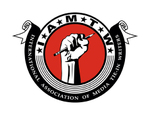I stumbled onto an interesting interview, conducted about seven years ago, with novelist Mel Odom on tie-in writing. He says, among other things:
"A lot of ‘regular’ authors look down on media tie-in authors because they figure ‘You’re not doing real work. You’re not really being a writer. You’re doing knock-off stuff.’ There have been a lot of ‘regular’ writers who try to do what Chris Golden and I do, and they can’t because they don’t assimilate the world enough, or they’re trying to bring too much of their own stuff to it. Media tie-in writing is really tough, because you have to be strong writer, and walk-in there and tell the best story you can, while at the same time you have to set your ego aside and do it ‘their way’ to a degree, as far as ‘Buffy would never do this.’ ‘But, when I was a kid, I would do that…’
He wants to make sure that his books are more than just a screenplay in book form:
I feel that a lot of people, why they try to do novelizations, they squeeze the dialogue in between text descriptions. You know, ‘They were sitting in a restaurant. He had pancakes, and she had a milkshake, and he said…’ You know, and there’s a lot of novelizations that read that way. I don’t want mine to read that way if I can. I want to give them a book that has legs. If you do a really nice book, it may have legs and be out there longer than the movie is. The movie will come and go in a month or two, but if you write the book really well, there will still be people ordering it for a long time after the film has left theatres. There’s something about a book."
Yes, there certainly is.



